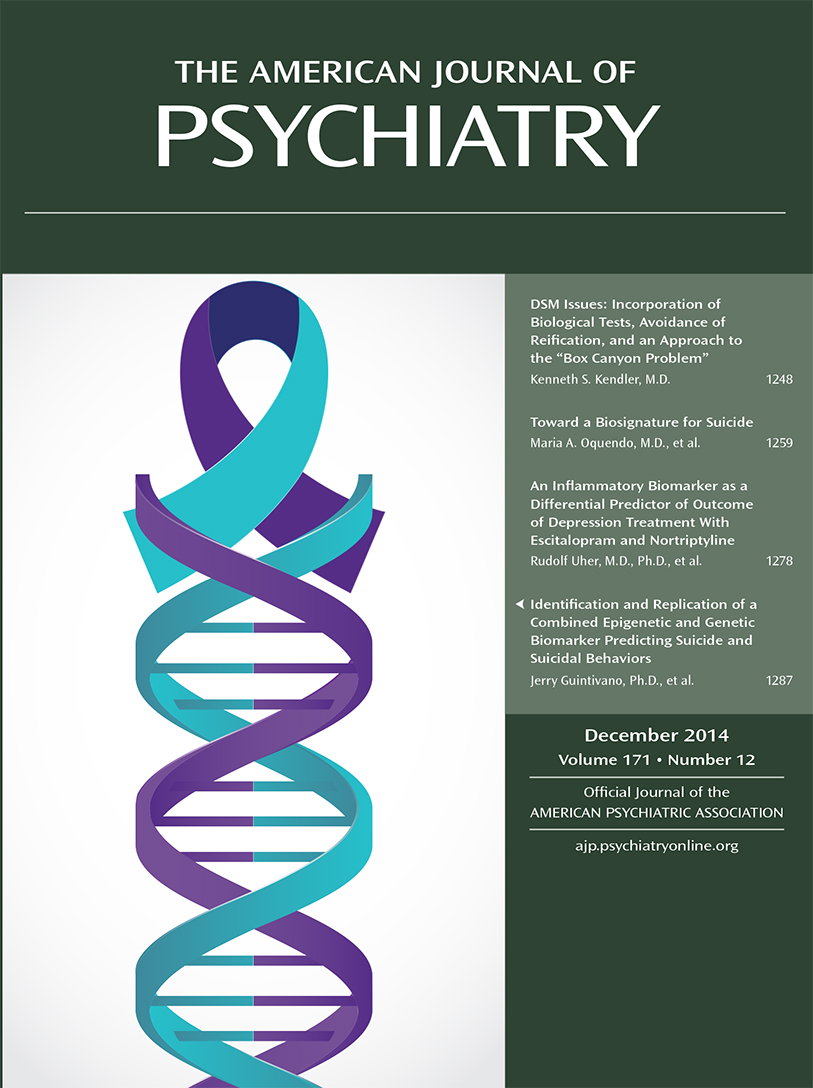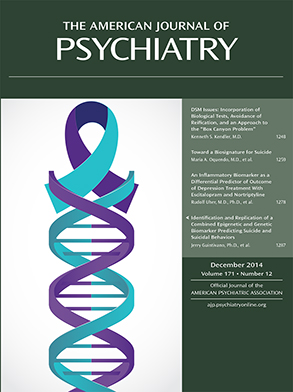To the Editor: We appreciate Dr. Parikh’s comments. The empirical justification for stepped care in bipolar disorder appears to be that some (but not all) of the randomized trials comparing intensive psychotherapy to brief psychoeducation have yielded negative results. The logic is that if an intensive therapy does not show an advantage over brief treatment on an outcome of interest, then clinicians should start with the brief treatment and move on to intensive therapy only if the patient appears likely to benefit based on a screening tool.
For the reasons below, we believe that adopting a stepped care approach to bipolar disorder, especially in younger patients and their families, is premature. First, six of seven randomized controlled trials have found that the combination of pharmacotherapy and family-focused therapy is more effective than pharmacotherapy and brief (or comparably intensive) psychoeducation. This core finding has been replicated across age groups and outcomes that have included recovery, recurrence, and symptom severity (
1). The single exception was our most recent study, in which pharmacotherapy and 21 protocol sessions of family-focused therapy were compared with pharmacotherapy and three protocol sessions of family psychoeducation (enhanced care) in adolescents with bipolar I and II disorder. The two treatments were associated with comparable times to recovery and recurrence over 2 years, although adolescents in the family-focused therapy group had less severe mania symptoms in the second year. Because the participants had been ill at randomization, they were allowed to have additional therapy visits during the 2-year study once they had completed their family-focused therapy or enhanced care protocol visits. Of the 73 families assigned to the three-session enhanced care, 40 (54.8%) opted for at least one extra therapy session during the study (range: 0–17); of the 72 assigned to family-focused therapy, 20 (27.8%) opted for additional sessions (range: 0–55). Thus, offering three or even six sessions of standardized psychoeducation after an illness episode may be inadequate for many patients and families, especially those early in the course of the disorder.
Second, properly sequencing psychosocial treatments may depend on how the patient responds to pharmacotherapy during acute treatment. Some patients recover quickly from mood episodes with pharmacotherapy alone and may not need additional care beyond maintenance drug treatment. In our study, 71% of the patients recovered in a median of 38 weeks; recovery was independent of the intensity of psychosocial treatments. In studies in which the quality of pharmacotherapy is standardized and continuously monitored, it may be more difficult to document the effects of brief versus intensive psychotherapy over and above medication effects.
Third, no studies have systematically examined the effects of intensive therapy after patients have undergone three to six sessions of psychoeducation. Neither our study nor the Parikh et al. (
2) study examined treatments sequentially, nor did either study include a no-therapy, medication-only comparison group. We would be more convinced of the utility of stepped care if brief psychoeducation and intensive therapy were shown to be equivalent in acute treatment, whereas intensive therapy was more effective in relapse prevention, independent of concurrent medications. As it stands, we cannot conclude that brief psychoeducation and medications are more effective than medications alone.
Fourth, using screening tools to identify patients who will respond to different forms of therapy is an appealing idea, but the literature on moderators of psychosocial treatment in bipolar disorder is scant. In fact, there are no instruments that have been shown to predict responses to one form of intensive therapy versus another. “Demonstrated family problems” may help us to predict the level of gain among patients who receive family-focused therapy following an acute episode, but they will not tell us whether family therapy is the treatment of choice over individual or group treatment. Furthermore, as we learned from the Therapies for Depression Collaborative Research Program, predicting responses to specific treatment modalities can lead to quite counterintuitive results. In that study, low cognitive dysfunction and low social dysfunction were associated with better responses to cognitive-behavioral therapy and interpersonal therapy, respectively (
3).
Finally, we cannot assume that all forms of brief psychoeducation are “simple, effective, and universal.” Indeed, brief psychoeducational treatments appear to differ in effectiveness when evaluated across settings, formats, and patient populations. The three-session enhanced care treatment used in our adolescent trial included parents and other family members, whereas the six-session psychoeducational approach of Parikh et al. (
2) was given in patient groups. The Systematic Treatment Enhancement Program for Bipolar Disorder found that each of three intensive therapies—family-focused therapy, CBT, and interpersonal and social rhythm therapy given in weekly and biweekly sessions over 9 months—was more effective than an individual three-session psychoeducational control in stabilizing bipolar depressive episodes among adults (
4).
We support research on any approach that reduces the financial burden on patients, families, and mental health systems. In this vein, we support efforts to test the effectiveness of stepped care in bipolar disorder, beyond its appeal as a cost-cutting alternative.

